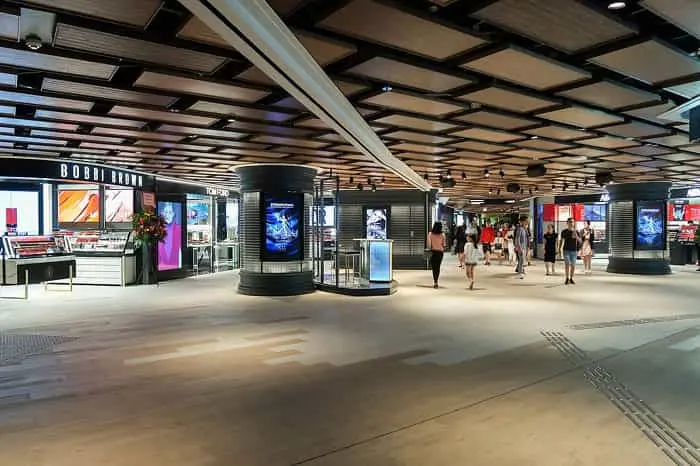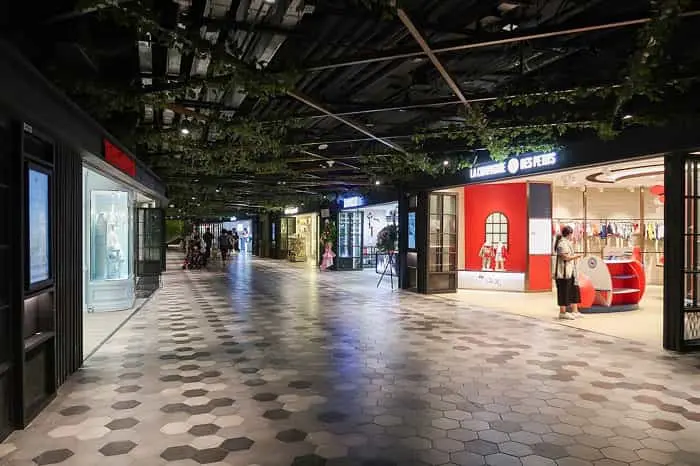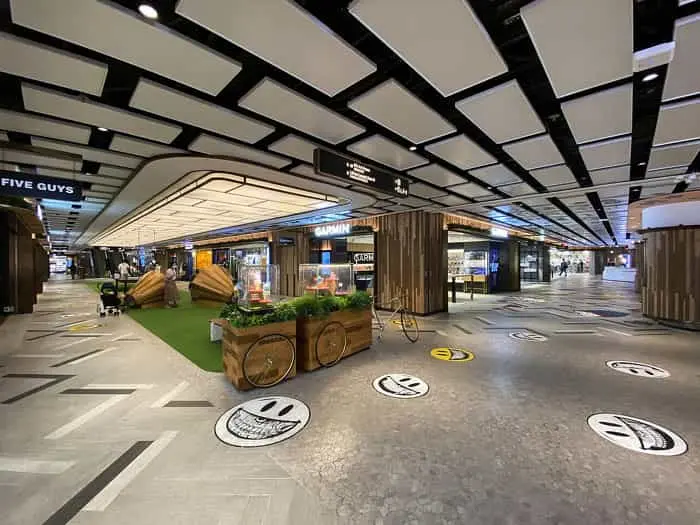Table of Contents

Against the dazzling skyline of Victoria Harbour, the New World Centre is like a diamond inlaid in the urban jungle, reflecting Hong Kong’s half-century commercial legend. whenAdrian ChengWhen Adrian Cheng took over as CEO of New World Development in 2017, this Harvard art history graduate was faced with not only inheriting the hundreds of billions of business empire created by his grandfather Cheng Yu-tung, but also shouldering the historical mission of reshaping the soul of the company in the wave of digital revolution and social change. From the emergence of the K11 Art Shopping Center to the strategic layout of the Taipei Metropolitan Area, Adrian Cheng has spent ten years proving that the highest level of commercial civilization is to inject humanistic spirit into reinforced concrete and let the flow of capital carry cultural warmth.
Shopping malls are often seen as the epitome of consumerism, but Adrian Cheng has broken through traditional real estate thinking with his unique artistic vision and business acumen, and created a brand that integrates art, humanity and nature.K11It not only redefines the value of retail space, but also injects a breath of fresh air into the urban culture of Hong Kong and even the world. This entrepreneur, known as the "Literary CEO", has become an iconic innovator in the Chinese business community with his forward-looking strategies and deep understanding of culture.
From heir to wealthy family to cultural innovator: Adrian Cheng’s cross-border genes
Zheng Zhigang was born into the Zheng family, one of the four largest families in Hong Kong. His grandfather wasNew World GroupThe founder, Cheng Yu-tung, has a father who is Cheng Kar-shun, the second-generation helmsman of the group. However, he did not stop at the family's halo, but opened up an "atypical" entrepreneurial path with his unique personal style. A graduate of the Department of East Asian Studies at Harvard University, he was deeply influenced by the art and culture of Kyoto, Japan. This pursuit of aesthetics became the foundation for his future combination of art and business.
In 2008, Adrian Cheng, who was only 29 years old, founded the K11 brand. His first project, “K11 Art Mall”, took “shopping art gallery” as its core concept, seamlessly integrating art exhibitions, cultural activities and retail spaces. This move not only subverted the operating model of traditional shopping malls, but also ushered in the "Renaissance" era of Hong Kong's commercial real estate. Later, he further expanded K11 to mainland cities such as Shanghai, Wuhan, and Guangzhou, and launched the flagship project "K11 MUSEA", becoming a global landmark with its ultimate artistic experience.
Adrian Cheng's leadership style is full of "Western individualism". His bearded "artist image", his keen sense of trendy culture (such as interacting with artists such as BLACKPINK and Jay Chou), and his bold investments in emerging technologies (such as NFTs and the metaverse) all demonstrate his ambition to break the conservative traditions of Chinese family businesses. Although his tenure at New World Group ended due to debt pressure and family power changes, the K11 model he promoted during his tenure has become a model for the combination of culture and business in Hong Kong.

Space Revolution: From Consumer Field to Cultural Silicon Valley
The design of K11 MUSEA is the culmination of Adrian Cheng’s artistic concepts. The mall’s atrium, the “Opera Theatre”, features a 33-meter-high space with spiral lighting, creating a theater-like immersive experience; the spherical exhibition hall “Gold Ball” is transformed into a stage for art installations and regularly hosts international exhibitions. What’s even more amazing is that Adrian Cheng personally participated in the design of the details, from the background music playlist to the iconic "caramel scent", all aimed at creating a multi-sensory experience that makes visitors "feel like walking in a design museum."
This "art scene" strategy not only attracts millennials who pursue spiritual values (70%'s customer base is young people), but also breaks the stereotype of "copycat" shopping malls. Compared with other "copy-and-paste" shopping malls owned by other conglomerates, K11 uses its unique narrative space to elevate consumer behavior into a cultural experience. As one netizen said: "It is rare to have such a unique shopping mall in Hong Kong."
Dialogue between the local and the global: Incubator of the art ecosystem
K11 is not only a platform for displaying artworks, but also a cultivator of the creative ecosystem. Through the K11 Art Foundation and the Rising Artists Program, Adrian Cheng has supported numerous emerging artists, such as Ma Haoxian’s multimedia exhibition “Adventures. Singularities. New Frontiers,” which combined science and aesthetics in a cross-disciplinary approach. In addition, K11 actively introduces international resources, such as cooperating with the Pompidou Center and the École Nationale Supérieure des Beaux-Arts in Paris, to promote artistic exchanges between China and France. This “local globalization” strategy not only strengthens local cultural identity, but also positions Hong Kong as an international art hub.
Innovation of business model: from real estate developer to cultural IP operator
In 2024, New World sold the K11 management business to Adrian Cheng personally for HK$209 million, a move that was seen as an affirmation of his cultural vision. Zheng Zhigang plans to develop K11 into an independent brand and further expand into the Greater Bay Area, Southeast Asia, Europe and the United States through global business networks and resource integration. This “de-real estate” transformation marks K11’s transformation from a space operator to a creator and exporter of cultural IP.

Game-changer thinking: from real estate development to cultural ecology construction
On the Tsim Sha Tsui waterfront, the curved glass curtain wall of K11 MUSEA reflects the waves of Victoria Harbour. This commercial complex, known as the "Cultural Silicon Valley", has completely overturned the operating logic of traditional shopping malls. Adrian Cheng transplanted the "curatorial thinking" from art history research into commercial space, creating the world's first museum retail concept. When customers purchase limited edition products next to Yayoi Kusama's Infinity Mirror House and participate in handmade workshops in the contemporary art exhibition hall, their consumption behavior has been sublimated into a cultural experience. This kind of innovation is not a simple superposition of "art + commerce", but a reconstruction of the interactive relationship between people, space and commodities through curatorial operations.
Cultural Soft Power: Reshaping Hong Kong’s Urban Soul
Adrian Cheng once said: "Art is soft power and the cornerstone of identity." His commitment to cultural values is reflected in many conservation and public undertakings. For example, the redevelopment project of the Royal Theatre in North Point, which unified the ownership at HK$4.776 billion, not only preserves the historical memory of Hong Kong's "Oriental Hollywood", but also plans to incorporate technological and educational elements to create a cross-generational cultural landmark. In addition, during his tenure as Chairman of the Hong Kong Cultural and Arts Events Committee, he promoted large-scale art festivals and international exhibitions, strengthening Hong Kong's position as a "center for cultural and artistic exchange between China and foreign countries."
This "ESG practice" that combines commercial interests with social responsibility gives humanistic depth to the corporate image. Even in the face of criticism that it is “using art as a bridge”, industry insiders still affirm its contribution: “K11 has given artists more exhibition opportunities and allowed ordinary people to get in touch with top works.”
Challenge and inheritance: Entrepreneurship in controversy
Zheng Zhigang's business journey has not been smooth sailing. During his tenure, he invested heavily in projects such as the Aerospace City and Kai Tak Sports Park, but due to the epidemic closures and the interest rate hike cycle, debts rose and he eventually resigned in disgrace. However, if we judge its success or failure solely by the rise and fall of its stock price, we may ignore its long-term impact on the city's culture. As a scholar said: "Good entrepreneurs need to have insight into economic cycles, but the accumulation of cultural values requires decades of verification."
Zheng Zhigang's case also reflects the complexity of inheritance of Chinese family businesses. As the "crown prince" designated by the next generation, he tried to break through his father Zheng Jiachun's conservative approach with innovative thinking, but failed due to the family power structure and market fluctuations. However, his personal acquisition of the K11 brand symbolizes the third-generation successor's insistence on "self-creation" - even if he is separated from the family halo, he still wants to continue the cultural mission.
Future Imagination: K11’s Global Ambition and Hong Kong’s Enlightenment
Looking ahead, Adrian Cheng plans to expand 38 K11 projects around the world and extend the concept of "integrating art into life" to the digital field. For example, he invested in NFT and the metaverse as early as 2022, introducing virtual art into physical shopping malls to create a "cross-dimensional" experience. This "technology + culture" strategy not only responds to the consumption preferences of Generation Z, but also opens up new possibilities for physical retail.
For Hong Kong, K11’s success demonstrates the economic value of “cultural capital”. In the global competition, if a city lacks a unique cultural narrative, it will eventually become a mediocre commercial outpost. As an entrepreneur, Adrian Cheng demonstrated how to transform art into "virtual currency", injecting difficult-to-replicate competitiveness into Hong Kong.
A mark of the times that transcends commerce
Standing on the top floor of the New World Centre and overlooking the Victoria Harbour, the future city vision envisioned by Adrian Cheng is emerging: the buildings here can breathe, the commercial space has a soul, and technological innovation has a humanistic warmth. As more and more entrepreneurs view ESG as a compliance requirement, New World has sublimated it into a business philosophy; while the industry is still discussing digital transformation, Adrian Cheng is already exploring cultural heritage in the metaverse. This 50-year-old enterprise group is weaving a new model of business civilization with culture as the warp and innovation as the weft. In this era of uncertainty, the practice of the new world reveals the eternal business truth: only by implanting the humanistic spirit into the development genes can enterprises transcend economic cycles and create a lasting legend.
The story of Adrian Cheng and K11 is not only a case of corporate innovation, but also an experiment on the soul of a city. In the struggle between capital and culture, he proved that commercial space can be a carrier of aesthetics, a cradle of creativity, and even a symbol of citizen identity. Although its business career has come to a temporary end, the cultural spark ignited by K11 will continue to illuminate the future of Hong Kong. As one netizen said, "The loss of Zheng Zhigang is a loss for Hong Kong, but we are thankful that he once allowed us to see another possibility for the business world."




